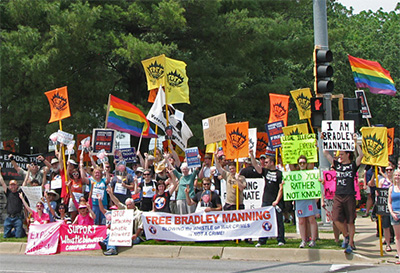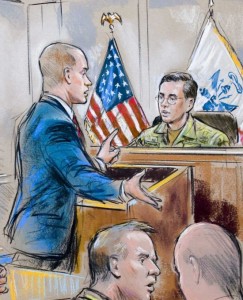| |||||||||||
This space is dedicated to the proposition that we need to know the history of the struggles on the left and of earlier progressive movements here and world-wide. If we can learn from the mistakes made in the past (as well as what went right) we can move forward in the future to create a more just and equitable society. We will be reviewing books, CDs, and movies we believe everyone needs to read, hear and look at as well as making commentary from time to time. Greg Green, site manager
Friday, November 16, 2012
Bradley Manning acknowledges act of conscience
Subscribe to:
Post Comments (Atom)



No comments:
Post a Comment